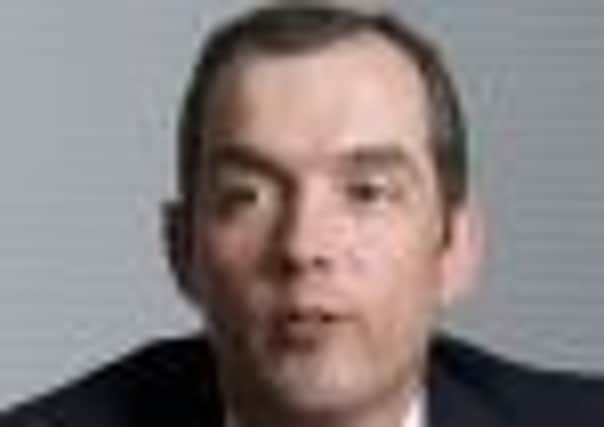Double-dip fears over slowdown in growth of services


The services sector, which covers restaurants, hotels, transport, business services and IT, suffered its sharpest slowdown in more than a decade when the 2001 foot and mouth crisis hammered the tourist, hospitality and agricultural sectors.
The Markit/CIPS Purchasing Managers’ Index (PMI) showed services activity fell to 51.1 in August from 55.4 in July. A reading above 50 indicates growth.
Advertisement
Hide AdAdvertisement
Hide AdThis was the second biggest fall on record after foot and mouth broke out in April 2001 and confounded forecasts for a gentler drop to 54.0.
The decline in the services sector, which makes up 75 per cent of the total economy, has raised fears of a stagnant economy and the chance of a return to recession.
Samuel Tombs, UK economist at Capital Economics, said: “With growth in all sectors of the economy now very weak, the chances of a double-dip in overall GDP are high and rising.”
Economist Howard Archer at IHS Global Insight added: “This survey really rings the growth alarm bells. Even allowing for any impact from the riots and a correction after a surprise spike up in services activity in July, this is a hugely disappointing survey.”
Advertisement
Hide AdAdvertisement
Hide AdCompanies cited economic uncertainty and slower growth in new business as the main reasons for weaker expansion last month. Survey compilers Markit said riots across England in early August played only a minor role in depressing activity.
Iain Moffatt, KPMG’s senior partner in Leeds, said: “It’s looked increasingly likely for some time now that pulling out of the recession would be a marathon not a sprint and, bearing this in mind, I think we have to expect some negative data without letting it knock our confidence in a long-term recovery too much.
“The health of the services sector in Yorkshire is critical to the region’s economic prosperity given the high proportion of GDP it accounts for so there’s no denying it’s disappointing to see a drop in the data.”
But Mr Moffatt said many Yorkshire businesses are well prepared for tough times over the coming months.
Advertisement
Hide AdAdvertisement
Hide Ad“The majority of the businesses I speak to have anticipated challenging times and made sensible changes to their cost base to help them cope with a prolonged period of subdued demand,” he said.
Kenton Robbins, the Institute of Directors’ regional director for Yorkshire, agreed: “The announcement of poor service sector performances in the latest PMI figures undoubtedly shows that regionally we have a long way still to go on the road to recovery.
“As a region that has a heavy reliance on the financial and business services sector employing over 270,000 people, this news is disappointing.
“But the general feeling from members is one of resilience, with a number of them reporting better than expected recent performance.”
Advertisement
Hide AdAdvertisement
Hide AdMarkit economist Chris Williamson said the numbers pointed to a near-stagnation of the economy in the third quarter.
“The economy could weaken further at the end of the quarter, raising the prospect of a slide back into contraction in the fourth quarter, if not the third, and will provide ammunition for those seeking a further injection of stimulus into the economy by the Bank of England.
“The all-sector PMI is at a level which has always triggered interest rate cuts in the past.”
The figures bolstered expectations that the Bank of England will leave interest rates at 0.5 per cent this week and ignited speculation that the central bank will consider injecting more stimulus into the economy later this year.
ABROAD OUTLOOK PAYS OFF AT FACTORY GATE
Advertisement
Hide AdAdvertisement
Hide AdResilient demand from abroad boosted British manufacturing output in the third quarter, and firms expect continued growth in coming months, according to a new survey which defies recent data pointing to a contraction.
However, the quarterly Manufacturing Outlook from manufacturers’ organisation EEF and accountants BDO also showed that fewer manufacturers are positive about the future.
A balance of 27 per cent of manufacturers said they had increased output in the last three months, slightly less than the 28 per cent in the EEF’s second quarter survey, published in June.